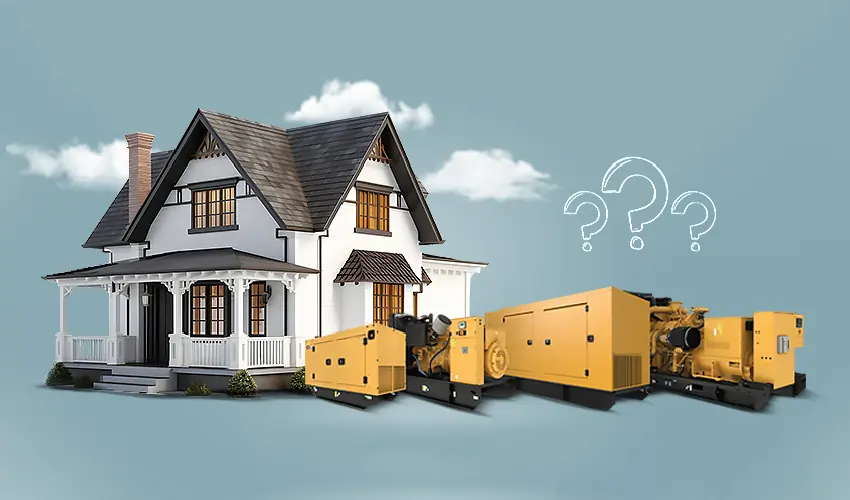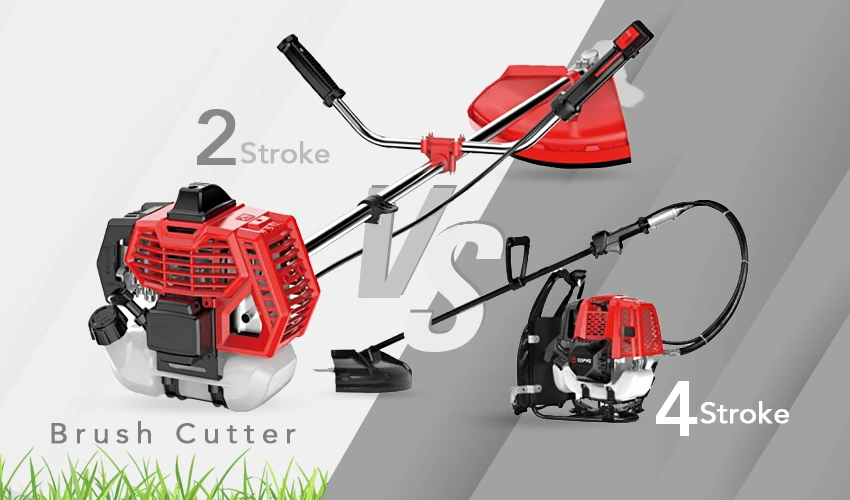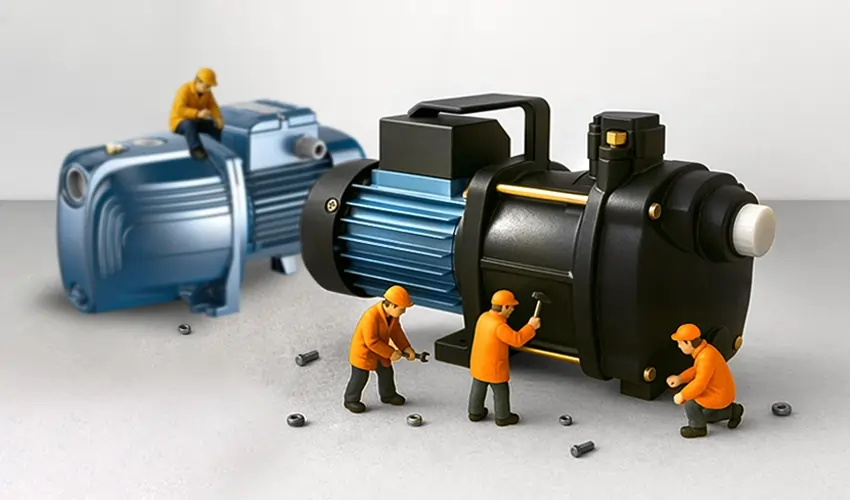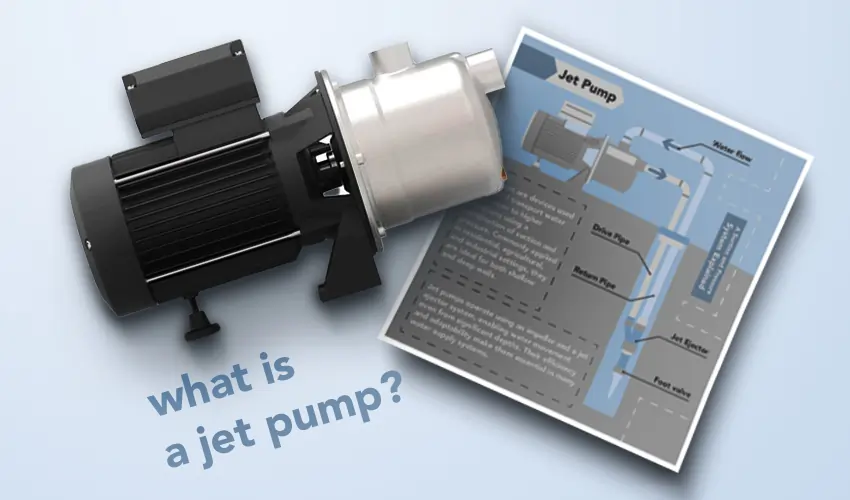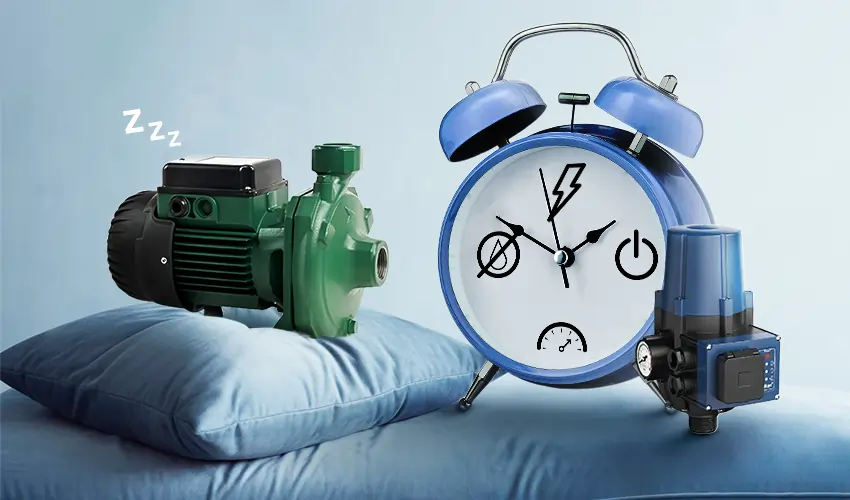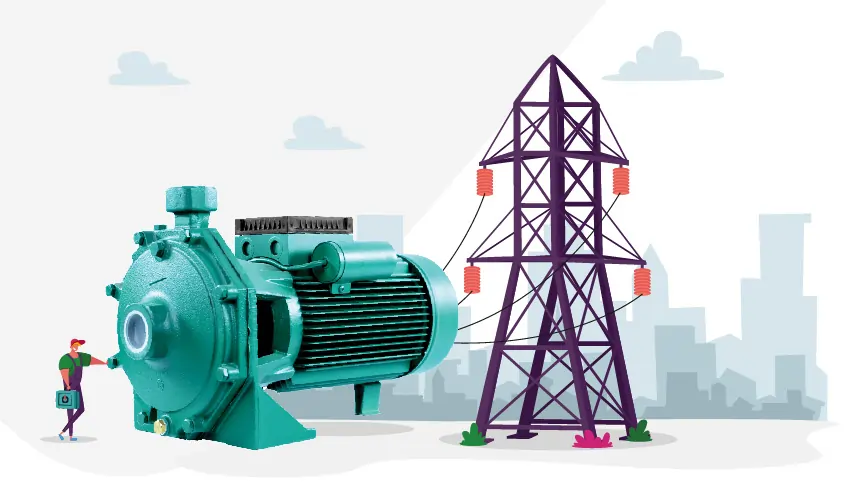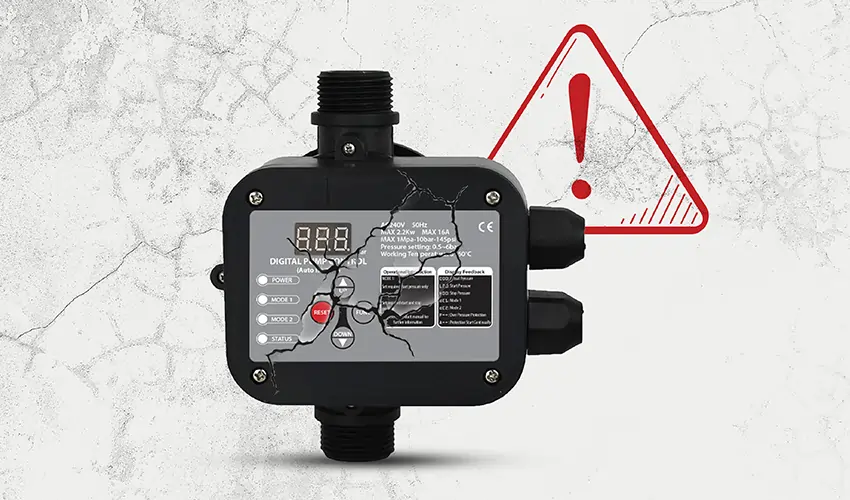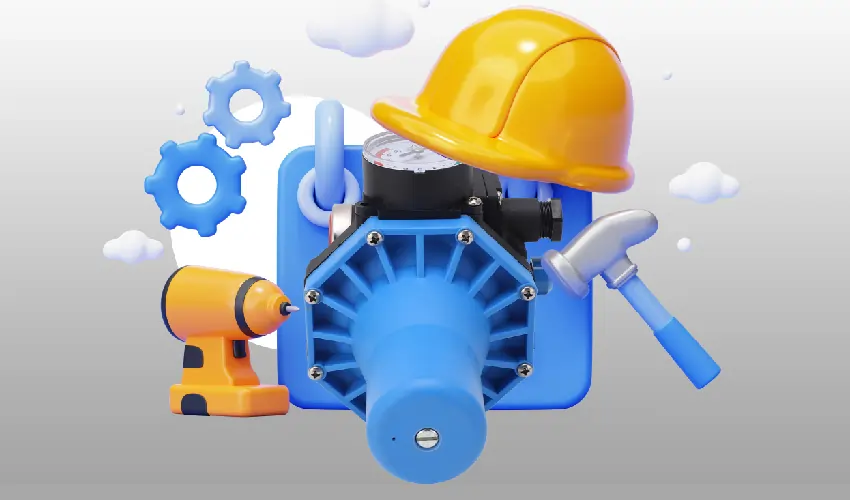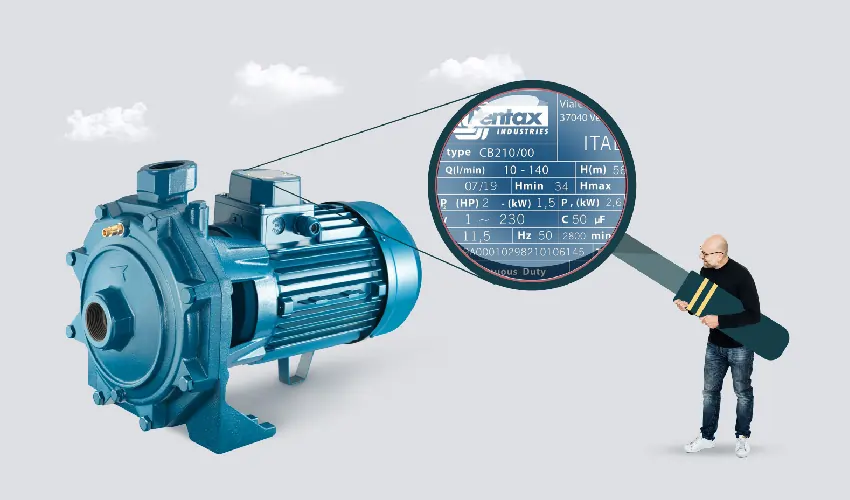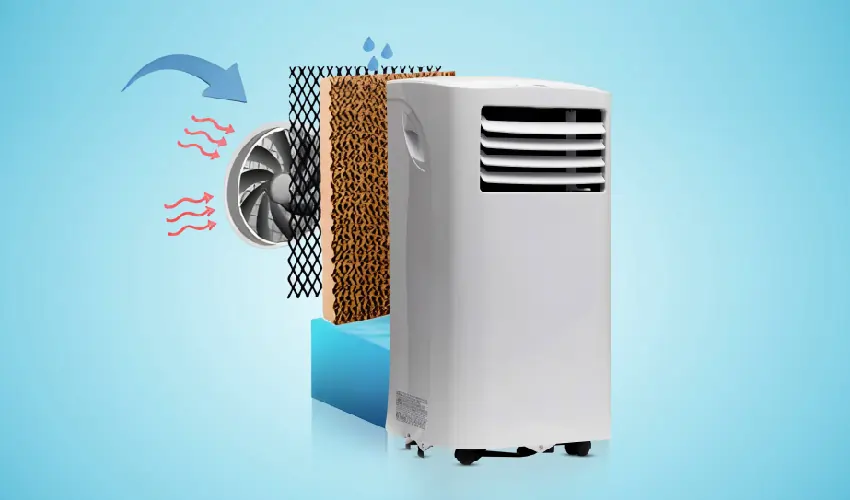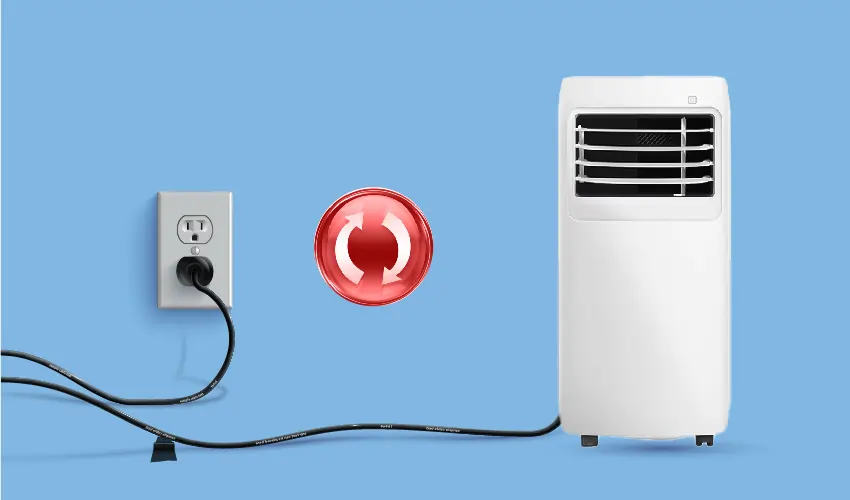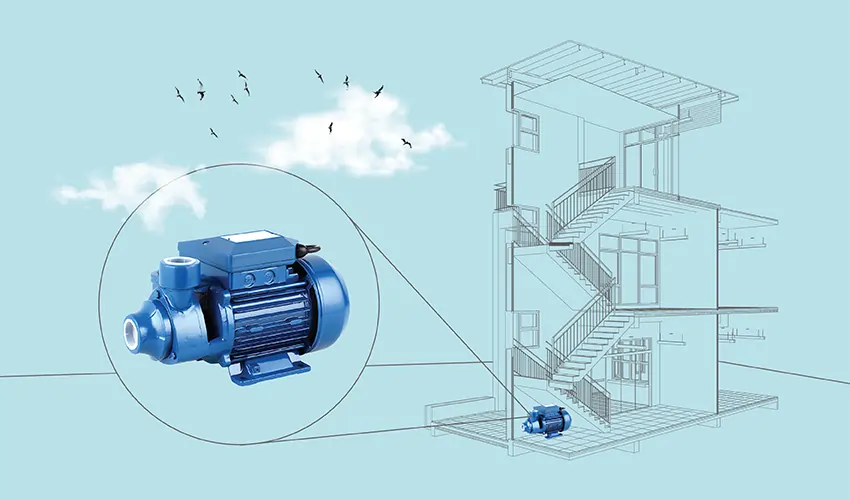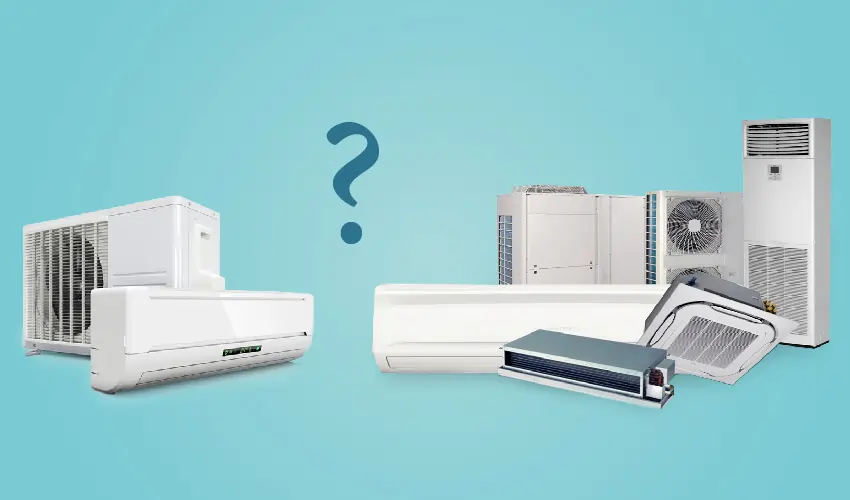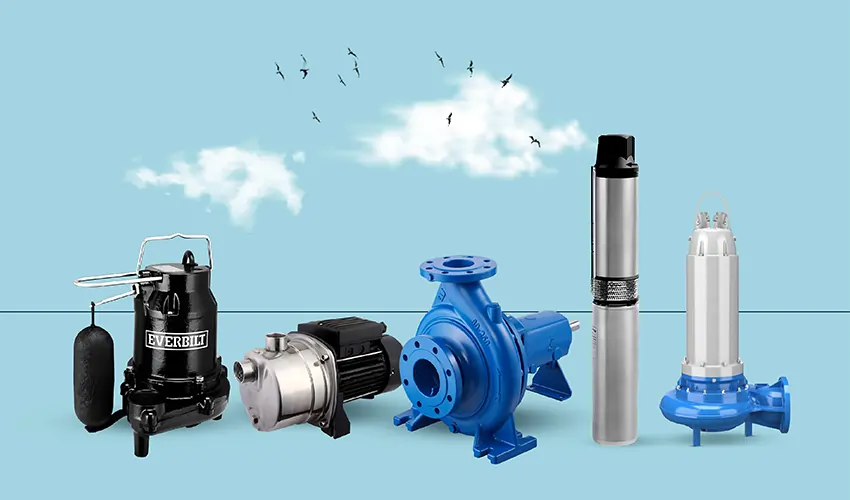For homeowners seeking reliable backup power solutions, diesel generator sets offer a dependable option to keep essential appliances and systems running during power outages. In this post we talk about best diesel generator set.
What is Diesel Generator Set and Its Working Principle?
A diesel generator set, often simply referred to as a diesel generator, is a combination of a diesel engine and an electric generator (often called an alternator) used to generate electrical energy. These generators are commonly used in situations where a stable and reliable power supply is needed, such as in remote areas, industrial settings, hospitals, data centers, and as backup power sources during power outages. The working principle of a diesel generator set involves the conversion of diesel fuel into mechanical energy and then into electrical energy. Here’s a step-by-step overview of how it works:
Diesel Engine: The diesel engine is the primary component of the generator set. It operates based on the principle of compression ignition. Diesel fuel is injected into the combustion chamber, where it mixes with highly compressed air. The heat generated by compression causes the fuel-air mixture to ignite spontaneously, driving the pistons downward. Mechanical Energy Generation: As the pistons move downward, they turn a crankshaft connected to the engine. This rotational motion is the conversion of chemical energy from diesel fuel into mechanical energy.
Alternator (Electric Generator): The crankshaft of the diesel engine is also connected to the rotor of the alternator. As the crankshaft rotates, it spins the rotor within a stationary set of conductors (stator) in the alternator.
Electromagnetic Induction: According to Faraday’s law of electromagnetic induction, when the magnetic field created by the spinning rotor cuts across the conductors in the stator, it induces an electric current in those conductors. This current is alternating in nature, meaning it periodically changes direction.
AC Generation: The alternating current (AC) produced in the stator is the output of the generator. This AC power typically undergoes further processing such as voltage regulation and conditioning before being supplied to electrical loads.
Voltage Regulation: Diesel generators often include voltage regulation systems to maintain a stable voltage output despite fluctuations in load or engine speed.
Cooling and Lubrication: The diesel engine requires a cooling system to dissipate excess heat generated during combustion, and a lubrication system to reduce friction and wear between moving parts.
Fuel Supply: The diesel generator set requires a steady supply of diesel fuel, which is typically stored in an onboard fuel tank. The fuel is drawn from the tank and injected into the combustion chambers as needed.
How Diesel Generator Set Differs From Traditional Systems
Traditional power generation systems, often referred to as centralized power plants, typically use large-scale turbines (such as steam or gas turbines) coupled with alternators to generate electricity. These centralized systems are usually located far away from the end-users and are designed to supply electricity to a wide area through transmission and distribution networks. Here are some key differences between diesel generator sets and traditional power generation systems:
Scale and Capacity: Diesel generator sets are often smaller in scale compared to traditional power plants. They are typically used for localized power generation needs, such as backup power for buildings, construction sites, or remote locations. Traditional power plants, on the other hand, are designed to generate electricity on a much larger scale to serve entire cities or regions.
Fuel Type: Diesel generator sets primarily use diesel fuel to power the combustion engines. In contrast, traditional power plants may use various fuel sources depending on their design, including coal, natural gas, nuclear fuel, or renewable sources like hydroelectricity or wind energy.
Location and Mobility: Diesel generator sets are often portable or semi-portable, allowing them to be easily transported and deployed wherever needed. They can be installed temporarily or permanently at various locations. Traditional power plants are usually stationary installations and are strategically located to optimize transmission efficiency and minimize environmental impact.
Response Time: Diesel generator sets can start up and begin supplying power relatively quickly, making them ideal for providing emergency backup power during grid failures or other disruptions. Traditional power plants typically have longer startup times and may not be suitable for providing immediate backup power.
Operating Cost and Efficiency: Diesel generator sets tend to have higher operating costs per unit of electricity generated compared to traditional power plants, especially when used for extended periods. Traditional power plants benefit from economies of scale and often operate more efficiently due to optimized designs and larger capacities.
Environmental Impact: Diesel generating sets emit pollutants such as nitrogen oxides (NOx), particulate matter, and carbon dioxide (CO2) during combustion, contributing to air pollution and greenhouse gas emissions. Traditional power plants vary in their environmental impact depending on the fuel source and emission control technologies used. Some traditional power plants, such as those using renewable energy sources or advanced emission controls, may have lower environmental impacts compared to diesel generators.
Describe the Main Components of a Diesel Generator Set
A diesel generator set consists of several main components working together to produce electricity. Here are the key components typically found in a diesel generator set:
Diesel Engine: The diesel engine is the primary power source of the generator set. It burns diesel fuel to produce mechanical energy. The engine’s size and power output depend on the capacity and intended use of the generator set.
Alternator (Generator): The alternator, also known as the generator, converts the mechanical energy produced by the diesel engine into electrical energy. It consists of a rotor (rotating part) and a stator (stationary part) with wire windings. As the rotor spins within the stator, it induces an electrical current in the windings due to electromagnetic induction.
Fuel System: The fuel system supplies diesel fuel to the engine for combustion. It typically includes a fuel tank for storage, a fuel pump to deliver fuel to the engine, fuel filters to remove impurities, and fuel injectors to atomize and inject fuel into the combustion chambers.
Cooling System: The cooling system prevents the diesel engine from overheating during operation. It typically includes a radiator, coolant pump, hoses, and a thermostat. Coolant circulates through the engine block, absorbing heat, and then passes through the radiator where it is cooled before returning to the engine.
Exhaust System: The exhaust system removes combustion gases and pollutants from the engine’s cylinders. It includes an exhaust manifold to collect exhaust gases from each cylinder, a muffler to reduce noise, and sometimes a diesel particulate filter (DPF) or selective catalytic reduction (SCR) system to reduce emissions.
Air Intake System: The air intake system supplies clean air to the engine for combustion. It includes an air filter to remove contaminants from the incoming air, an intake manifold to distribute air to the engine cylinders, and a turbocharger or supercharger to increase air intake pressure for improved performance.
Control Panel: The control panel is the interface used to start, stop, and monitor the diesel generator set. It typically includes controls for engine starting, voltage regulation, frequency adjustment, and safety shutdowns. Advanced control panels may also feature digital displays for monitoring parameters such as voltage, current, and engine temperature.
Voltage Regulator: The voltage regulator maintains a stable output voltage from the alternator regardless of changes in load or engine speed. It adjusts the excitation current supplied to the alternator’s rotor to control the output voltage.
Battery System: A battery system provides electrical power to start the diesel engine and may also serve as a backup power source for control panel electronics. It typically includes a rechargeable lead-acid battery and a charging system, such as an alternator or battery charger.
How to Choose the Best Diesel Generator Set?
Choosing the best diesel generator set requires careful consideration of several factors to ensure it meets your specific needs and requirements. Here are some key steps to guide you through the selection process:
Determine Power Requirements: Start by calculating the total power (in kilowatts or kilovolt-amperes) needed to support your critical loads. Consider both the continuous power requirement and any peak or surge demands.
Consider Load Characteristics: Evaluate the type of loads the generator will be powering, including their starting currents, power factor, and any sensitive equipment that requires clean and stable power.
Assess Application and Environment: Determine where the generator will be installed and the environmental conditions it will be subjected to (e.g., temperature, humidity, altitude). Choose a generator set that is suitable for the intended application and environment.
Define Fuel Requirements: Decide on the type of fuel (e.g., diesel, biodiesel) that is readily available and cost-effective in your location. Consider factors such as fuel storage requirements, availability, and regulatory compliance.
Evaluate Size and Portability: Determine whether you need a stationary or portable generator set based on your application. Consider factors such as space constraints, mobility requirements, and ease of installation.
Select a Reliable Brand and Manufacturer: Research reputable brands and manufacturers known for producing high-quality diesel generator sets. Look for manufacturers with a proven track record of reliability, durability, and after-sales support.
Assess Noise and Emissions: Consider noise and emissions regulations in your area and choose a generator set that meets or exceeds these requirements. Look for models with sound-attenuated enclosures and advanced emission control technologies. Review Features and Options: Evaluate additional features and options offered by different generator sets, such as automatic start/stop functionality, remote monitoring capabilities, built-in fuel tanks, and advanced control systems.
Compare Total Cost of Ownership: Consider the total cost of ownership over the generator set’s lifespan, including initial purchase price, installation costs, maintenance expenses, fuel consumption, and potential downtime costs.
Consult with Experts: If you’re unsure about which generator set to choose, consider consulting with industry experts, engineers, or generator specialists who can provide personalized recommendations based on your specific requirements.
What are the Best Diesel Generator Set?
Determining the “best” diesel generator set depends on various factors including your specific needs, budget, application, and preferences. However, several reputable manufacturers are known for producing high-quality diesel generator sets that are widely used across different industries. Here are some of the top diesel generator set manufacturers known for their reliability, performance, and customer satisfaction:
Caterpillar (CAT): Caterpillar is a globally recognized brand known for producing durable and reliable diesel generator sets ranging from small portable units to large industrial generators. CAT generators are known for their fuel efficiency, advanced technology, and robust construction.
Cummins: Cummins is another leading manufacturer of diesel engines and generator sets. Their generators are known for their efficiency, durability, and wide range of power outputs. Cummins diesel generators offer a variety of options tailored to different applications, including standby, prime, and continuous power generation. Cummins Power gensets are also durable and remain a top-market choice to this day.
Generac: Generac is a prominent name in the residential, commercial, and industrial generator market. They offer a wide range of diesel generator sets known for their reliability, ease of maintenance, and innovative features such as remote monitoring and automatic transfer switches.
MTU Onsite Energy (Rolls-Royce Power Systems): MTU Onsite Energy, a division of Rolls-Royce Power Systems, specializes in high-performance diesel generator sets for various applications including data centers, hospitals, and industrial facilities. Their generators are known for their high power density, low emissions, and advanced control systems.
Kohler Power Systems: Kohler is a well-established manufacturer of power generation equipment, including diesel generator sets. Kohler generators are known for their reliability, quiet operation, and advanced technology features such as remote monitoring and automatic load management.
Kubota: This Japanese brand combines percision and power all in a diesel generator set. Kubota diesel gensets are usually top-tier and the 50 Hz models are compatible with UAE electrical setups.
Atlas Copco: Atlas Copco offers a range of diesel generator sets designed for construction, mining, and rental applications. Their generators are known for their durability, fuel efficiency, and ease of maintenance, making them suitable for demanding environments.
Perkins: Perkins is a respected name in the diesel engine industry, known for producing reliable and fuel-efficient engines used in generator sets worldwide. Perkins generators are valued for their simplicity, durability, and cost-effectiveness.
John Deere Power Systems: John Deere is known for its quality engines used in a variety of applications, including diesel generator sets. Their generators are recognized for their reliability, low operating costs, and long service life.
Conclusion
For home use, the best diesel generator set combines reliability, efficiency, quiet operation, and ease of maintenance. Generators from reputable manufacturers such as Cummins, Generac, and Kohler Power Systems are well-suited for residential applications.

